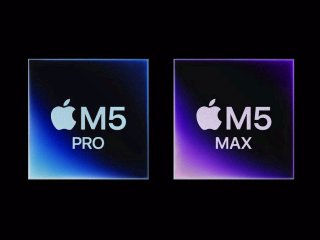- Home
- Apps
- Apps Features
- Can Uber Conquer Latin America?
Can Uber Conquer Latin America?

Last month, 10 managers for Uber's Latin American operations huddled around a table in the company's Mexico City office and worried about the future. "Unlike everyone on this call, he hasn't been a GM," one general manager groused.
They were referring to Jeff Jones, the chief marketing officer for Target who had just been named as Uber's new president, in charge of its global ridesharing business. As one of the GMs pointed out, Jones came from a retailer that conducted nearly all of its business inside the United States. Uber's future depends on international growth-especially in Latin America.
Andrew Macdonald, who oversees all of Uber's operations in Latin America and Asia, reassured his subordinates. He said he had already invited the new boss to tag along on his hectic international travel schedule and that it was their job "to make sure he doesn't come in with too US-centric a view of the world."
Uber operates in more than 65 cities in Latin America, and Macdonald's planning to double that by the end of next year. He began overseeing the region a little over a year ago, and the number of rides has increased 10-fold in that time, rising to 45 million trips in August. "We just had to turn it up a little bit more," he said. "And then once we started getting the momentum, people were like, 'holy shit, Brazil could be a top five business for us.'" Today, Brazil is Uber's third biggest business after the US and India. Mexico City is Uber's busiest city in the world. Sao Paulo is number two.
The region is especially important for Uber because of a strategic decision the company made halfway around the world. On August 1, Uber agreed to leave China after losing more than $2 billion in two years doing war with its ride-hailing rival Didi Chuxing. Both companies were heavily subsidizing rides, burning through cash. Uber didn't walk away empty-handed. The company took a 17.5 percent stake in Didi's business in exchange for an exit. The deal was generally seen as a victory for Uber, which had long been the underdog in China. Still, the truce has left Uber scrambling to show that its business remains a globally ambitious one. That makes Latin America, India and Southeast Asia, Macdonald's fiefdom, all the more essential to Uber's future.
Macdonald, universally called "Mac" at Uber, is a 6-foot-3, freckled redhead. Born and raised in Toronto, his Canadian accent occasionally slips in, but his vocabulary is more defined by the business bromides that he picked up during his years at Bain & Co. consulting firm. After a few successful years as a consultant, he ran a struggling fashion site called "ShopMyClothes" before joining Uber in 2012. He's 32.
When he started, he found Uber's reputation off-putting. "I wasn't drawn to that, but once you're in it you become a believer," he said. "From the outside looking in it looks like we're just troublemakers, we don't care about the rules, we want to do our own thing. But when you actually run the business and see the impact that we have on drivers and that we're actually making life easier, you just believe it."
Macdonald had been absent from Latin America before his September visit; he had been spending a lot of time in China, laying the groundwork for the Didi deal and then working on the transition. In Mexico City, the GMs seemed calmed by his presence. The downtown office has several startup staples: ping pong tables, an Nintendo 64 video game console and a well-stocked kitchen with beer in the fridge. Cooks are on hand, whipping up omelets, gazpacho and generous cuts of meat-three square meals a day. The office is filling up. In September, about two dozen employees had just been hired to launch UberEats, the company's food delivery service, throughout Latin America, and the company is preparing to take over another floor.
Uber sees Latin America as the Promised Land: somewhere it can grow rapidly facing weak, under-funded competition. That's not how the rest of the world looks. India remains expensive and competitive, as Uber dukes it out with Ola, backed by Softbank. Europe has a lot of regulations to contend with. Even in the US, Uber burned through $100 million in the second three months of this year, fending off rival Lyft. In Latin America, however, Uber's primary ride-hailing competitors are less established and just don't have enough money right now to make Uber's life too difficult. The company is already doing about twice as many trips a month in Latin America as it is in India.
(Also see: Inside Uber's Plan to Beat Ola in India's $10 Billion Ride-Sharing Market)
But for Uber to win over Latin America, it will need to navigate disparate regulations and cultures in dozens of countries. Buenos Aires, the most populous city in Argentina, has issued Uber multiple notices that it should stop operating since it is not registered as a taxi service. Uber has said that since it isn't a taxi service, the company has the right to operate there. In Bogota, Colombia, the country's taxi unions have campaigned vehemently against Uber. During Macdonald's visit to the region in September, he expressed optimism that a peace accord there could strengthen Uber's position in the city. Colombia voted down an accord with rebels a few days later. Lima, Peru, has a flourishing taxi industry, which has made it harder for Uber to find a foothold. In September, Uber rolled out its carpooling service in hopes that it could beat out its competitors by driving prices down.
Rodrigo Arevalo, Macdonald's number two, built Uber's Latin America business from nothing. Today, Mexico City has more than 50,000 Uber drivers careening around the city's crowded streets. Arevalo, who out-dresses most Silicon Valley executives, was born in Mexico and used to work as an entrepreneur-in-residence at Rocket Internet, the company known for unabashedly copycatting the best ideas from Silicon Valley and Beijing. Arevalo's old employer has become one of Uber's two biggest competitors in Latin America through an investment it made in Easy, a taxi-booking app launched in 2011. The company, which recently rebranded from "Easy Taxi," operates in 420 cities, primarily in Latin America.
The company has raised about $80 million, according to Paul Malicki, an adviser to Easy. "We just became the first taxi app in the world that broke even," said Malicki, who recently stepped down as the company's chief marketing officer. "In this era, when everyone is raising tons of cash, we believe it is going to become a battle of cockroaches, not necessarily unicorns."
The other major competitor in Latin America is Cabify, which raised $120 million from the Japanese e-commerce company Rakuten in April. Cabify's primary business is a black car service for corporate customers. While the company has raised millions of dollars, it is cash poor compared to Uber's global competitors. (Uber has raised more than $15 billion in cash and debt globally. Didi raised $7 billion in June.) "I think the difference between us and Uber is we have to make money," said Courtney McColgan, Cabify's chief marketing officer. As long as Uber's competitors in Latin America try to make money on each ride, the region will remain far more affordable for Uber than India or China.
(Also see: Uber Brings 'Schedule a Ride' to India; Lets You Book a Cab Up to 30 Days in Advance)
Macdonald believes that Uber has been slow to lock down some "very key, big strategic markets" in the region, either because of government regulation or because the company didn't invest the money to build a network of drivers and riders. Now Uber is refocusing. While the company wouldn't put a number on how much it was spending in Latin America, its Mexico City offices now have more than 150 employees and the company has hired more than 350 employees in Latin America.
In his meeting with the general managers, Macdonald mostly let Arevalo run the show. He was there enforcing Uber's top priority: growth. In Latin America, that means expanding carpooling so more people can afford to take an Uber. It also means accepting cash.
Lima is one of the cities experimenting with cash. Many people in Lima don't have a credit card and the city's taxi business does just fine taking cash. If Uber wants to be competitive there, it knows that it has to adapt. The company has started taking cash in India as well. But handling bills is more logistically complicated than running all the payments through a credit card that's stored in Uber's smartphone application. Drivers need to give the company a cut of their fares. Otherwise, Uber would run into the same problems those taxi apps face.
There's also the threat of violence. Carrying money could make them a target for thieves, and Uber drivers already risk beatings in many Latin American cities. Even in Mexico City, where Uber is a dominant force, drivers hide that they work for Uber. Uber doesn't provide the distinctive logo to place on Ubers for fear drivers would face violence from angry taxi drivers whose livelihoods are under siege.
Macdonald said the company had recently examined whether cash put drivers at greater risk and found that it didn't. So, he said, "If they're worried, it's a bit emotional."
But in the discussion of driver safety, the specter of growth was never far away. If GMs see a rise in assaults against drivers, Arevalo said, they should "distinguish whether it's because of cash or it's because of growth."
© 2016 Bloomberg L.P.
For details of the latest launches and news from Samsung, Xiaomi, Realme, OnePlus, Oppo and other companies at the Mobile World Congress in Barcelona, visit our MWC 2026 hub.
Related Stories
- Samsung Galaxy Unpacked 2026
- iPhone 17 Pro Max
- ChatGPT
- iOS 26
- Laptop Under 50000
- Smartwatch Under 10000
- Apple Vision Pro
- Oneplus 12
- OnePlus Nord CE 3 Lite 5G
- iPhone 13
- Xiaomi 14 Pro
- Oppo Find N3
- Tecno Spark Go (2023)
- Realme V30
- Best Phones Under 25000
- Samsung Galaxy S24 Series
- Cryptocurrency
- iQoo 12
- Samsung Galaxy S24 Ultra
- Giottus
- Samsung Galaxy Z Flip 5
- Apple 'Scary Fast'
- Housefull 5
- GoPro Hero 12 Black Review
- Invincible Season 2
- JioGlass
- HD Ready TV
- Latest Mobile Phones
- Compare Phones
- Apple iPhone 17e
- AI+ Pulse 2
- Motorola Razr Fold
- Honor Magic V6
- Leica Leitzphone
- Samsung Galaxy S26+
- Samsung Galaxy S26 Ultra
- Samsung Galaxy S26
- MacBook Pro 16-Inch (M5 Max, 2026)
- MacBook Pro 16-Inch (M5 Pro, 2026)
- Apple iPad Air 13-Inch (2026) Wi-Fi + Cellular
- Apple iPad Air 13-Inch (2026) Wi-Fi
- Huawei Watch GT Runner 2
- Amazfit Active 3 Premium
- Xiaomi QLED TV X Pro 75
- Haier H5E Series
- Asus ROG Ally
- Nintendo Switch Lite
- Haier 1.6 Ton 5 Star Inverter Split AC (HSU19G-MZAID5BN-INV)
- Haier 1.6 Ton 5 Star Inverter Split AC (HSU19G-MZAIM5BN-INV)














